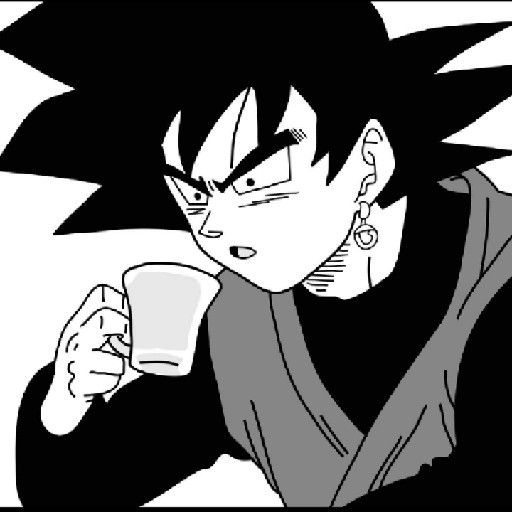DIPPING INTO THE MARKET
MOTHERFUCKER THEY BUYING HOMES FOR TO LIVE IN LIKE NORMAL PEOPLE
NOT REPTILES
AAAAA
 : “live in…house…? That’s such a weird…alien concept! Where’s the invoooooost!?!? Why do browns hate money so much?”
: “live in…house…? That’s such a weird…alien concept! Where’s the invoooooost!?!? Why do browns hate money so much?”
90% of chinese people already own their home anyway and don’t view their homes as an appreciating asset the way westerners have been brainwashed into viewing them, so this wont hurt anybody who already owns a home and will only help those who have yet to get on the property ladder.
china stays winning meanwhile you cant scroll on american social media more than twice without seeing something pop up from someone crying because they can’t afford rent food or both
China sees scarcity as a problem to be solved
America sees abundance as a problem to be solved.
facts, plus america sees scarcity as an opportunity to exploit
westoids seek to create scarcity whenever possible
Wait wait so prices went down which means more people are buying homes and that means that actually the economy is still working because goods are still being bought and sold?

MFW China is everything capitalism THINKS it is.
The problem is a lot more complex than what people are making it out to be.
Way too many people and corporations had invested into the property speculation frenzy post-2014 and now they are losing a lot of money as the bubble starts to burst (which also explains the slumping consumption since Covid).
Note that the sales value of new houses had plunged by 17.1% (blue line) and the area (floor space) by 12.9% (yellow line):

Pay attention to the difference between the sales value and area: the value of newly built houses is falling off at an even greater rate than previously built houses of the same size.
Local governments that had anticipated to profit off the land premium also ended up making loses and found themselves unable to repay their accumulating debt.
And the falling property prices have translated into diminishing expenditures in social spending. Just compare the expenditures of the national budget from 2024 and from 2023:
Spending on education increased only 2% last year (it was 4.5% in 2023).
Social welfare spending increased by 5.6% (was 8.9% in 2023).
Healthcare spending fell by 9.1% (was -0.6% in 2023).We are in a complex crisis with no easy way out: either save the property prices and keep expanding the bubble further (which will make the eventual burst that much more painful), or let the property market crash and households, corporations and local governments lose a huge ton of money (which means plunging consumption and government spending and straight into recession).
The mood from this Chinese New Year reflected as much the current predicament of the economy - literally everyone I know has curbed spending on New Year’s celebration and the fanfare was nowhere near the level we had in the previous years.
I had thought the government is intentionally is allowing this to happen to avoid a catastrophe by expanding the bubble? Maybe I got my wires crossed, because from your comment it seems that they’re trying to figure out a solution.
For me the fundamental problems are that
- China’s central bank has no mechanism for debt cancellation, which has resulted in the perpetual refinancing of the debts (borrowing cheaper to pay back expensive interests) and thus its vulnerability to the Federal Reserve interest rates (the US practically controls how easy China’s local governments can pay back their debts)
- The government operates its spending as if it is still in the gold standard era but with dollar as the reserve currency. It has very limited ability to expand its base currency without earning foreign reserves or through issuing collateral backed debt (e.g. repo, SLF, MLF etc.) so they cannot directly print money to increase the people’s wages to spend. (Of course, this also has to a lot to do with the government committing to an export-oriented economy)
It’s trying to solve the problems with your hands tied.
Right. Very insightful
thank you for this! it’s good to learn about these crises from a lens normally hidden from us
the maoist uprising against the landlords was the largest and most comprehensive proletarian revolution in history, and led to almost totally-equal redistribution of land among the peasantry
what if we did this but globally

The house market is the only one that prices are tried to keep artificially hi and everyone is ok with it.
Everyone who already has a house or houses is okay with it.
A real big “fuck you, I got mine”
And it’s pretty stupid, they’re going to sell the house and live where? In the bank with all that money? The houses are going to be expensive for them too!
If a person borrows $100k and buys a $100k house, they will have zero equity. If house prices double, they have an asset worth $200k, a loan of $100k, leaving them $100k in equity. This approach to finance is so common in the US that a 7% dip in housing prices is seem as apocalyptic. You will have people walking away from mortgages, foreclosures, a contraction in the money supply since people will not be able to borrow as much against their assets, and banks will fail from the depreciating homes on their balance sheets and/or aggregate demand will fall. And people who are doing well and very well are mostly just people that were allowed to borrow a lot of money at favorable interest rates.
Remember the joke about how the person who voted for the leopards eating people’s faces party was shocked when the leopards at THEIR face?
If there’s one thing boomers are good at, it’s pushing their luck. They go in with the assumption that THEIR property value will rise and not anyone else’s. Lo and behold everyone’s housing values are high so they probably would be no better off if property values stayed low in terms of net profit.
Since the western “middle class” do not own as much capital as the upper class and have to make most of their living off their labor, they don’t have as clear a path to retirement. Owning a property that appreciates in value is instilled in them as the path to financial freedom.
I think it has to do with the fact that no alternatives are ever presented (pensions are attacked and defunded, social security defunded etc.) so they can’t even comprehend a world where you don’t have to accumulate as much as possible before you hit retirement age.
 nooooooo not the investor won’t anyone think about the downtrodden investors
nooooooo not the investor won’t anyone think about the downtrodden investorsReally gotta stop platforming the acp fascists here.
Beginning to think we need to compile a list of these nazbol freaks so people don’t get confused and post accidentally.
Investors



good emote candidate
deleted by creator
RTSG News
The cost is 7% cheaper
Me when the Chinese line goes down

Me when the American line goes down

 : “Won’t somebody think of the invoooosters! Muh heckin liquid equity assets! Noooo! I can’t boooood mah woooooth!”
: “Won’t somebody think of the invoooosters! Muh heckin liquid equity assets! Noooo! I can’t boooood mah woooooth!”
















